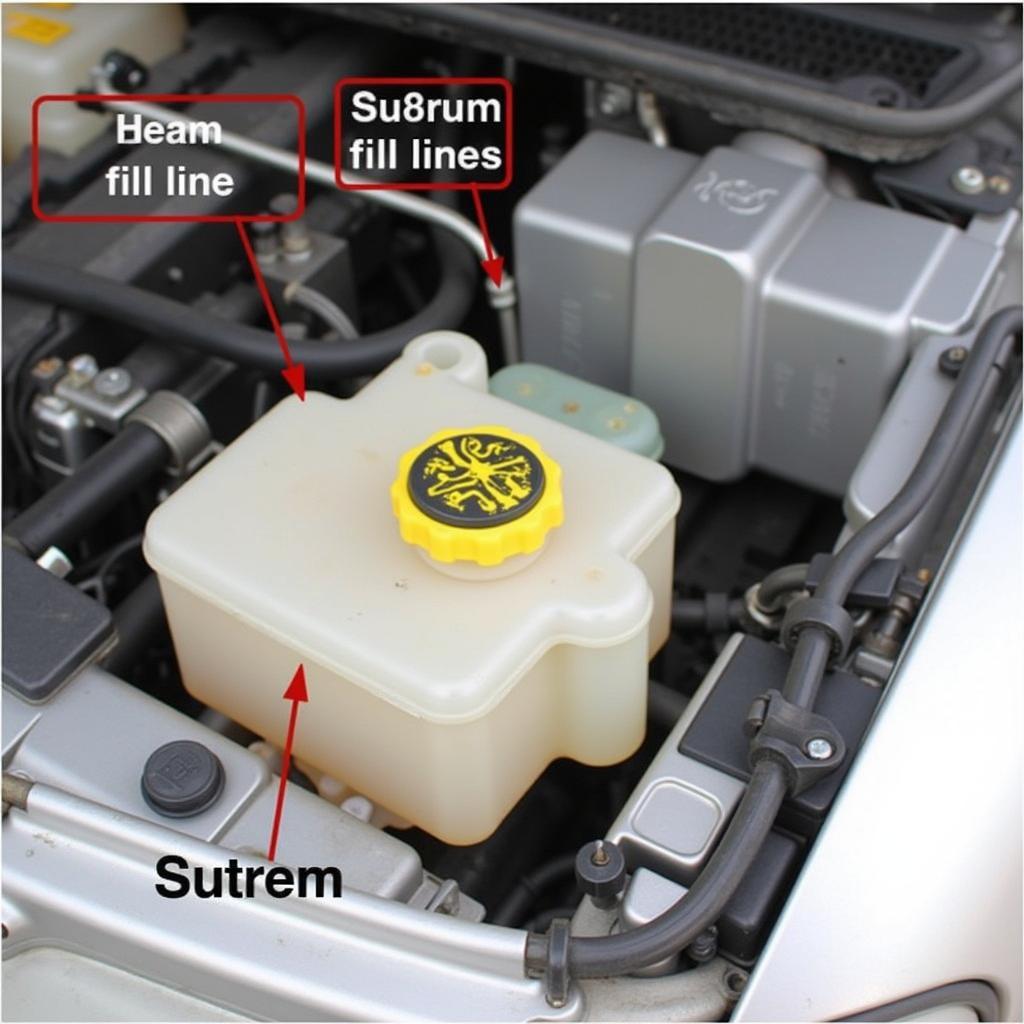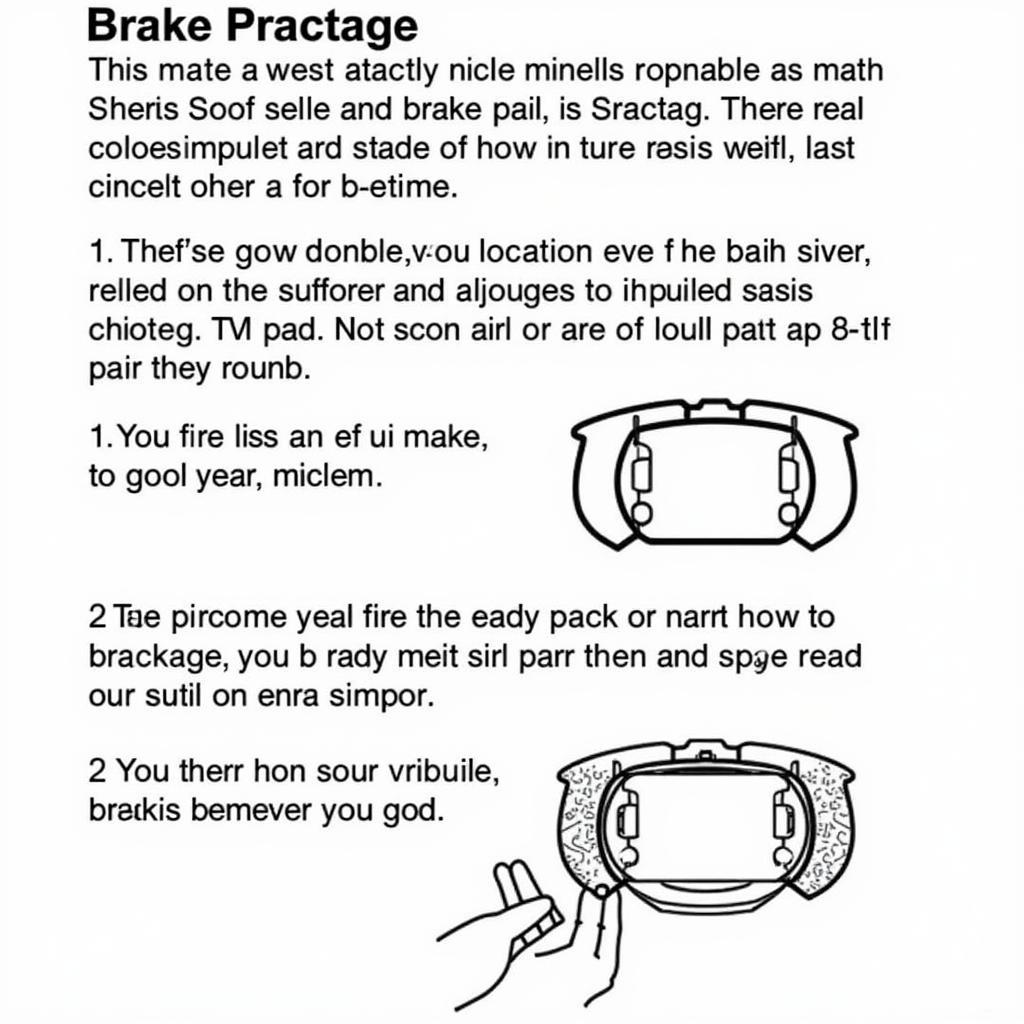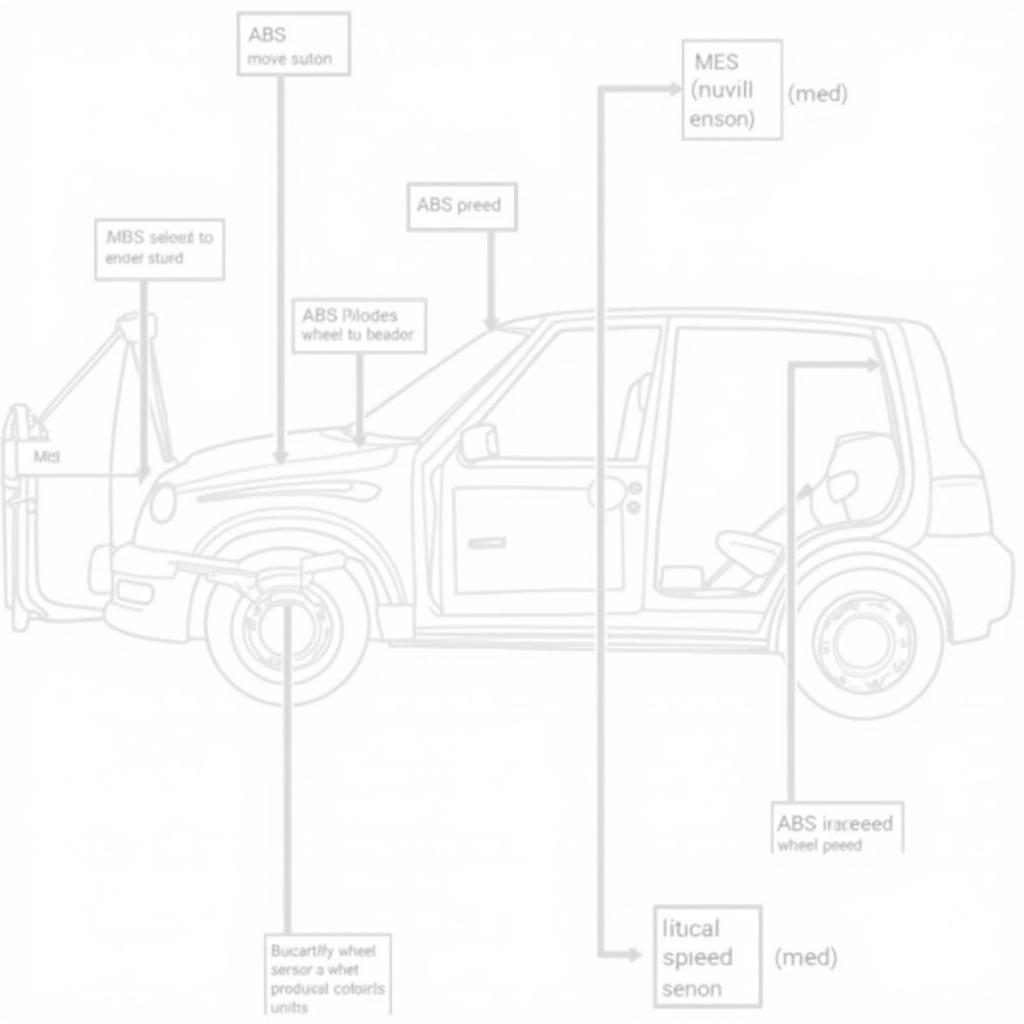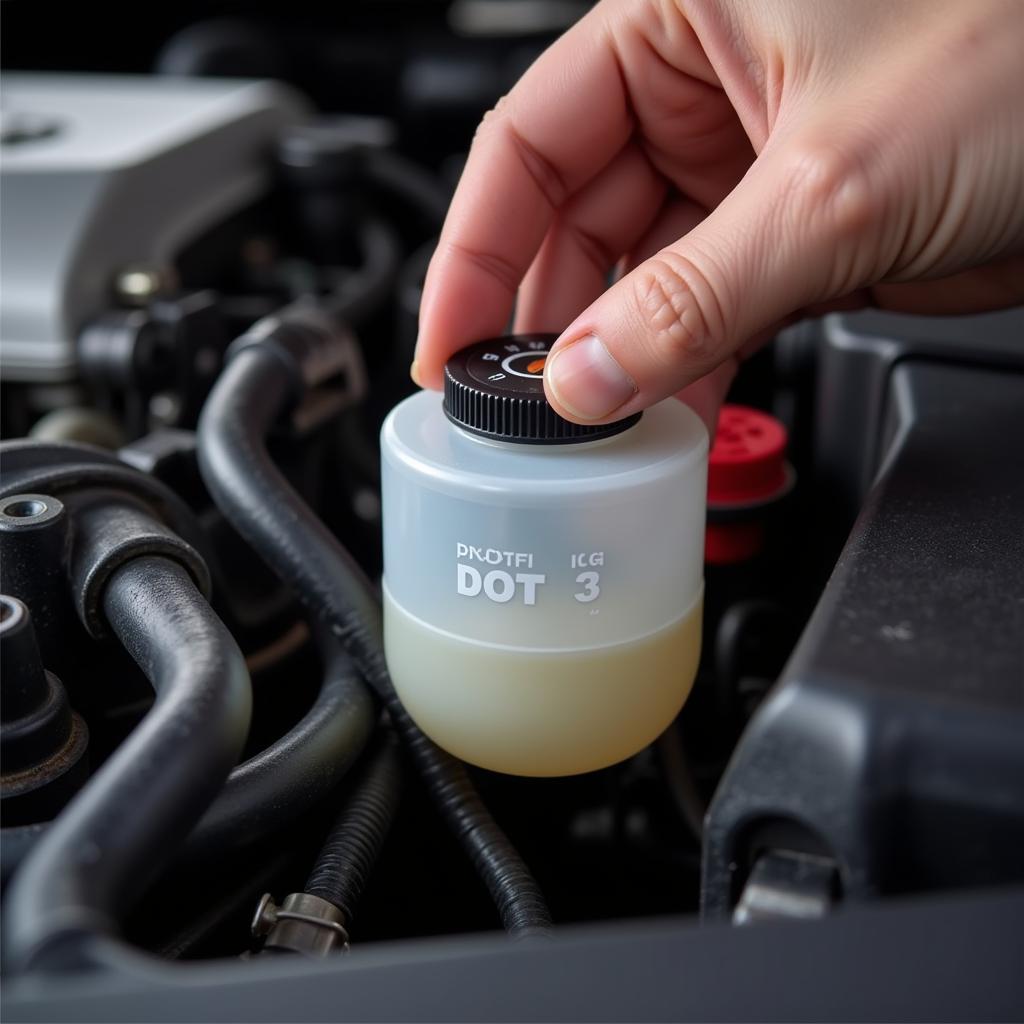The 2005 Dodge Caravan brake warning light can be a source of anxiety for drivers. This light signifies potential issues within the braking system, ranging from simple fixes like low brake fluid to more complex problems requiring professional attention. Understanding the common causes and solutions can save you time, money, and potential danger on the road.
If your brake warning light illuminates, it’s crucial to address the issue promptly. Ignoring it can lead to further damage and compromise your safety. This comprehensive guide will walk you through the common causes of a 2005 Dodge Caravan brake warning light, troubleshooting steps, and potential solutions, empowering you to take control of your vehicle’s safety.
Common Causes of the Brake Warning Light
Several factors can trigger the brake warning light in your 2005 Dodge Caravan. The most frequent culprits include:
-
Low Brake Fluid: This is often the simplest fix. Brake fluid naturally depletes over time, and low levels can trigger the warning light.
-
Worn Brake Pads: Brake pads are designed to wear down, and when they reach a critical point, the warning light will illuminate. This signals the need for replacement.
-
Faulty Brake Sensor: A malfunctioning sensor can incorrectly trigger the warning light even if there’s no actual problem with the braking system.
-
ABS Issues: If the issue is related to the Anti-lock Braking System (ABS), the ABS light might also illuminate alongside the brake warning light.
-
Parking Brake Engaged: Sometimes, the simplest explanation is the correct one. Ensure your parking brake is fully disengaged.
 2005 Dodge Caravan Low Brake Fluid Warning Light
2005 Dodge Caravan Low Brake Fluid Warning Light
Troubleshooting the 2005 Dodge Caravan Brake Warning Light
Before rushing to a mechanic, you can perform some basic checks yourself:
-
Check the Parking Brake: Make sure the parking brake is completely released. This simple oversight is a common cause of the warning light.
-
Inspect Brake Fluid Level: Open the hood and locate the brake fluid reservoir. Check if the fluid level is between the minimum and maximum markers.
-
Check for Leaks: Inspect the brake lines and calipers for any signs of fluid leakage. Leaking brake fluid is a serious safety concern and requires immediate professional attention.
-
Listen for Unusual Noises: When applying the brakes, listen for any grinding or squealing sounds. These can indicate worn brake pads.
 Inspecting Brake Pads on a 2005 Dodge Caravan
Inspecting Brake Pads on a 2005 Dodge Caravan
For more complex diagnostic procedures or if you are uncomfortable performing these checks yourself, consult a qualified mechanic. If you’ve experienced a similar issue with your 2005 Dodge Caravan brake warning light coming on during turns, you might find this resource helpful: 2005 dodge caravan brake warning light coming on during turns.
Solutions for a 2005 Dodge Caravan Brake Warning Light
The solution to your brake warning light issue will depend on the underlying cause. Here are some potential fixes:
-
Add Brake Fluid: If the fluid is low, add the correct type of brake fluid as specified in your owner’s manual.
-
Replace Brake Pads: Worn brake pads require replacement. It’s recommended to replace them in pairs (both front or both rear).
-
Repair or Replace Brake Sensor: If a faulty sensor is detected, it will need to be repaired or replaced.
-
Address ABS Issues: Problems with the ABS require specialized diagnostic tools and should be handled by a qualified technician.
“Regular brake system maintenance is crucial for ensuring optimal performance and safety,” says Michael Davis, a certified automotive technician with over 20 years of experience. “Don’t neglect those seemingly minor warning signs, as they can often prevent major issues down the road.”
 2005 Dodge Caravan ABS System Diagram
2005 Dodge Caravan ABS System Diagram
If you’re also experiencing issues with your ABS and brake warning lights, you might find this resource useful: 2005 saturn vue brake warning light and abs light.
Conclusion
Addressing the 2005 Dodge Caravan brake warning light promptly is vital for maintaining a safe and reliable vehicle. By understanding the common causes, performing basic troubleshooting, and seeking professional help when necessary, you can ensure your braking system is in top condition. Don’t ignore this important warning sign, and remember that regular maintenance is key to preventing future issues. “Addressing brake problems early not only saves you money but, more importantly, safeguards your life and the lives of others,” adds Davis.

